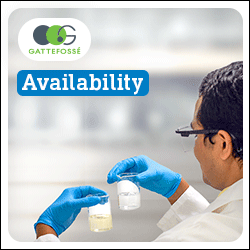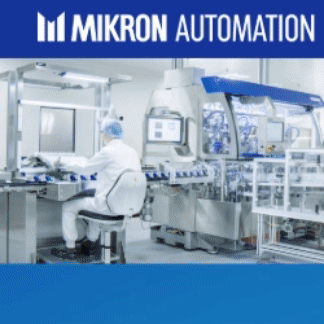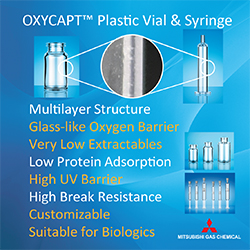Athira Pharma Presents Clinical & Preclinical Data Supporting Therapeutic Potential of Fosgonimeton in Alzheimer’s & Parkinson’s Diseases
Athira Pharma, Inc. presented new clinical and preclinical data further highlighting the therapeutic potential of fosgonimeton at the AD/PD 2024 International Conference on Alzheimer’s and Parkinson’s Diseases and Related Neurological Disorders in Lisbon, Portugal, March 5-9, 2024.
Fosgonimeton is a potentially first-in-class investigational small molecule designed to positively modulate the hepatocyte growth factor (HGF) system, which can activate neuroprotective, neurotrophic and anti-inflammatory pathways in the central nervous system.
“Data presented at AD/PD, in tandem with the existing body of preclinical and clinical evidence, continue to support the potential of targeting the neurotrophic HGF system to treat neurodegenerative diseases, including Parkinson’s disease, Alzheimer’s disease and dementia with Lewy bodies,” said Mark Litton, PhD, President and Chief Executive Officer of Athira. “We believe safety and efficacy outcomes from the exploratory SHAPE Phase 2 clinical trial presented at this year’s AD/PD, along with previous clinical data, support the continued development of fosgonimeton. The encouraging pro-cognitive effects observed in the 40 mg dose group, assessed for fosgonimeton for the first time in Parkinson’s disease dementia and dementia with Lewy bodies, underscore our confidence in the Phase 2/3 LIFT-AD trial, which is evaluating fosgonimeton at 40 mg as a potential treatment for mild-to-moderate Alzheimer’s disease, with data expected in the second half of 2024.”
Athira presented an expanded dataset from the exploratory SHAPE Phase 2 clinical trial evaluating fosgonimeton in Parkinson’s disease dementia and dementia with Lewy bodies as a follow up from data shared in December 2023. While the primary endpoint was not met by protocoled analysis compared with placebo, as previously disclosed, the data indicated a favorable safety and tolerability profile for fosgonimeton in trial participants. In addition, changes in ADAS-Cog13 observed in the fosgonimeton 40 mg dose arm were suggestive of a pro-cognitive effect, which was assessed for fosgonimeton for the first time in these disease states. These findings support the potential therapeutic benefit of modulating the neurotrophic HGF system with fosgonimeton for neurodegenerative diseases.
“We’re pleased to be presenting additional preclinical data highlighting the neuroprotective effects of fosgonimeton in models of both Alzheimer’s and Parkinson’s diseases at AD/PD 2024,” said Kevin Church, PhD, Chief Scientific Officer of Athira. “In Alzheimer’s disease models, key results showed that the neuroprotective effects of fosgonimeton against glutamate toxicity in vitro are driven, in part, by activation of pro-survival signaling pathways that may help to counteract neurodegenerative hallmarks such as tau pathology and mitochondrial dysfunction.”
Dr. Church continued, “In models of Parkinson’s, the dataset highlights the ability of fosgonimeton to mitigate pathological alterations associated with α-synuclein toxicity in vitro and in vivo. In an aged mouse model of Parkinson’s that included α-synuclein pathology and GBA1 inhibition, fosgonimeton improved motor function, promoted dopaminergic neuron survival, and reduced α-synuclein aggregation. This continued research of fosgonimeton adds to the body of evidence that positive modulation of the neurotrophic HGF system is a potential therapeutic approach for Parkinson’s and other neurodegenerative diseases.”
Fosgonimeton is a small molecule designed to enhance the activity of the neurotrophic hepatocyte growth factor signaling system, an endogenous repair mechanism for a healthy nervous system. The function of the neurotrophic HGF system may be impaired in conditions of neurodegeneration. Targeting the protection and repair of neuronal networks, fosgonimeton has disease-modifying potential to address a broad range of neurodegenerative diseases, including Alzheimer’s disease, Parkinson’s disease, and dementia with Lewy bodies.
SHAPE was a randomized, double-blind, placebo-controlled, parallel-group Phase 2 trial for ATH-1017 (fosgonimeton) in subjects with Parkinson’s disease dementia or dementia with Lewy bodies. The SHAPE trial was originally designed to enroll approximately 75 individuals, but Athira elected to end enrollment in October 2022 at 28 subjects due to subsequently identified study design limitations and a prioritization of resources toward the LIFT-AD trial in mild-to-moderate Alzheimer’s disease. Study participants were randomized across two dose groups and one placebo group on a 1:1:1 basis to receive a subcutaneous injection of ATH-1017 (fosgonimeton) or placebo once daily over a treatment course of 26 weeks. The primary endpoint for SHAPE was a composite score of the change in Event-Related-Potential (ERP) P300 latency and cognition (ADAS-Cog13), which was not met by protocoled analysis.
Athira Pharma, Inc., headquartered in the Seattle, Washington area, is a late clinical-stage biopharmaceutical company focused on developing small molecules to restore neuronal health and slow neurodegeneration. Athira aims to alter the course of neurological diseases by advancing its pipeline of therapeutic candidates that modulate the neurotrophic HGF system, including fosgonimeton, which is being evaluated for the potential treatment of mild-to-moderate Alzheimer’s disease in the Phase 2/3 LIFT-AD trial that is expected to report topline data in the second half of 2024. For more information, visit www.athira.com.
Total Page Views: 1278














